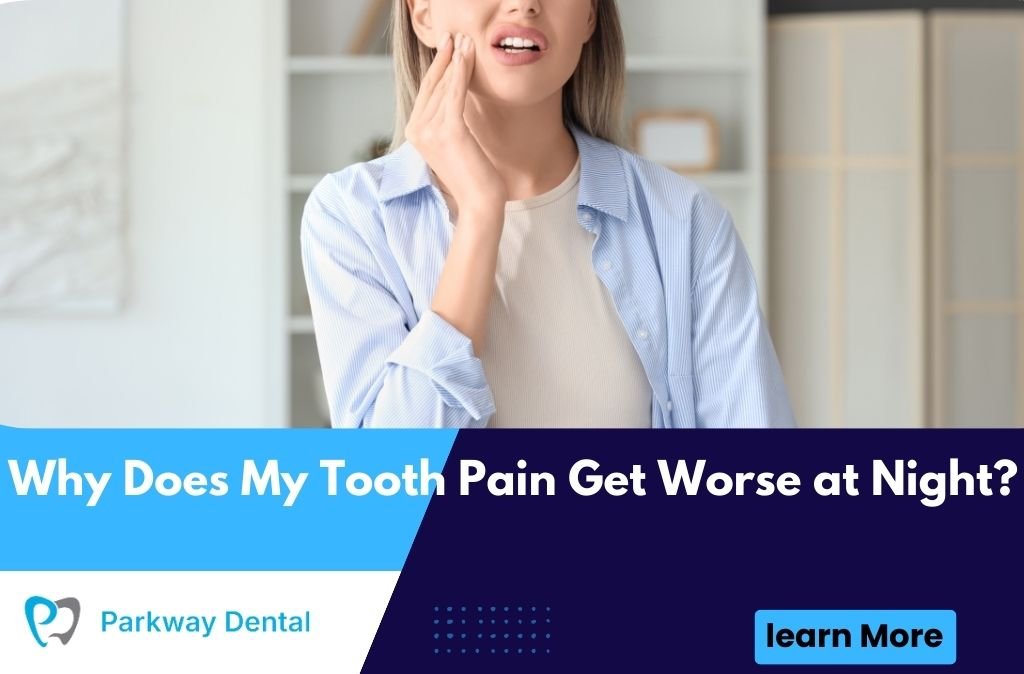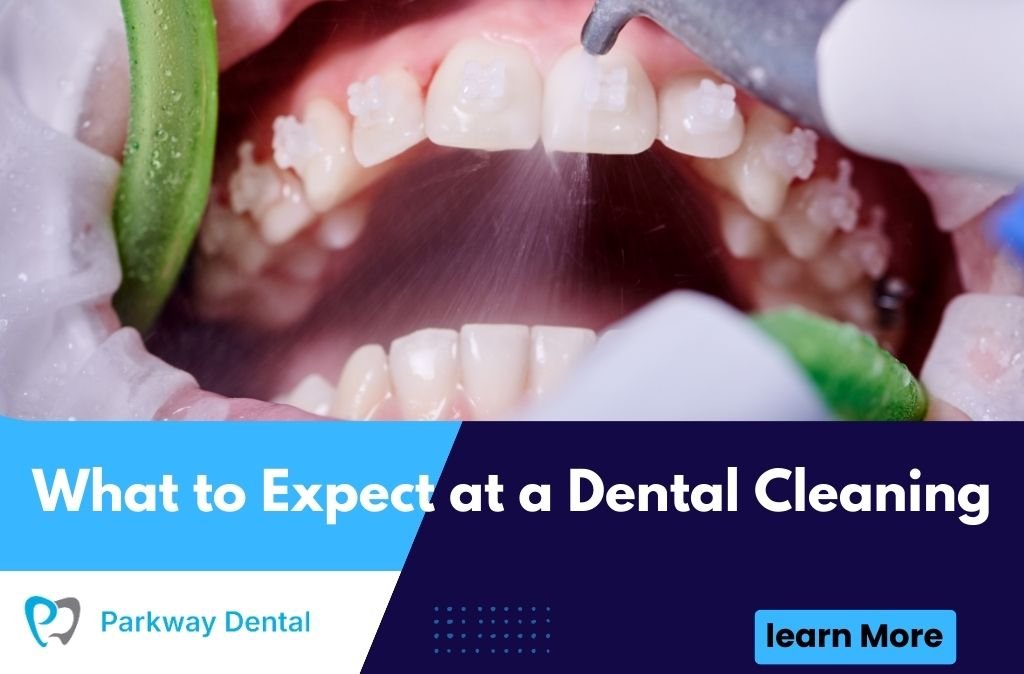Nighttime tooth pain is one of the most frustrating dental experiences, often intensifying just when you need rest most. This phenomenon affects millions of people worldwide, turning peaceful nights into sleepless ordeals filled with throbbing dental pain. Understanding why tooth pain at night becomes more severe involves examining physiological changes, blood flow patterns, and positioning effects that occur during sleep. Whether you’re experiencing nerve pain, tooth infection, or dental sensitivity, nighttime intensification is a common complaint that requires both immediate relief strategies and professional dental care.
The Science Behind Nighttime Tooth Pain
Nighttime dental pain intensifies due to several interconnected physiological factors that change when we lie down and prepare for sleep. These natural body processes create the perfect storm for tooth pain amplification, making even minor dental problems feel unbearable during nighttime hours.
When we transition from daytime activities to nighttime rest, our body’s pain perception and management systems undergo significant changes. Understanding these mechanisms helps explain why toothache at night becomes more prominent and provides insight into effective management strategies.
Blood Flow and Circulation Changes
Increased blood flow to the head occurs naturally when lying flat, creating additional pressure within tooth structures and surrounding tissues. This enhanced circulation can intensify inflammation around infected teeth, abscessed teeth, or areas with tooth decay, leading to increased throbbing pain.
The horizontal position during sleep causes blood to pool in the head and facial regions, creating pressure that wasn’t present during upright daytime activities. This blood pressure increase can exacerbate existing dental inflammation and make tooth nerve pain more pronounced and difficult to ignore.
Reduced Distraction and Heightened Awareness
Daytime activities and distractions naturally help mask dental discomfort, but nighttime quiet eliminates these diversions. Without the mental occupation of work, conversation, or daily tasks, our brain focuses more intensely on physical sensations, making tooth pain seem more severe than during busy daytime hours.
Pain perception becomes heightened in quiet environments where there are fewer competing stimuli. This psychological component of nighttime tooth pain combines with physiological factors to create an overwhelming sensation that can prevent restful sleep and require immediate attention.
Common Causes of Nighttime Tooth Pain
Dental problems that worsen at night typically involve inflammation, infection, or nerve irritation that responds negatively to positional changes and increased blood flow. Identifying the underlying cause is essential for effective treatment and pain relief.
Tooth Infections and Abscesses
Tooth infections and dental abscesses create significant inflammation that intensifies with increased blood flow during horizontal positioning. The infected tooth becomes a reservoir of pressure that builds throughout the night, creating severe throbbing pain that can radiate to the jaw, ear, and surrounding facial areas.
Bacterial infections within tooth pulp or surrounding tissues respond poorly to the increased circulation that occurs when lying down. The additional blood flow feeds the infection while simultaneously increasing pressure within the confined space of the tooth structure, creating intense dental pain that often requires emergency treatment.
Tooth Decay and Cavities
Advanced tooth decay that has reached the tooth nerve becomes particularly painful at night due to increased sensitivity and pressure changes. Cavities that expose nerve tissue to temperature changes, pressure variations, and bacterial irritation create conditions that worsen significantly during nighttime hours.
Deep decay compromises the tooth’s natural protective barriers, allowing increased blood flow to directly affect nerve tissue. This creates a cycle of inflammation and pain that intensifies when horizontal positioning increases circulation to the affected area.
Cracked or Damaged Teeth
Cracked teeth and dental trauma create pathways for bacteria and irritants to reach sensitive nerve tissue. The pressure changes associated with increased nighttime blood flow can cause these cracks to expand slightly, creating additional nerve irritation and intensified tooth pain.
Fractured teeth often develop hairline cracks that are invisible during normal examination but become problematic when pressure increases. These microscopic openings allow fluids and bacteria to penetrate deeper into tooth structures, creating infection risks and severe nighttime pain.
Physiological Factors Contributing to Night Pain
Circadian rhythm changes affect our body’s natural pain management systems, often reducing the effectiveness of endogenous pain-relieving chemicals during nighttime hours. This biological timing can make existing dental pain feel more intense and harder to manage naturally.
Cortisol levels typically decrease during nighttime hours, reducing the body’s natural anti-inflammatory response. Lower cortisol means less natural pain relief and inflammation control, allowing dental pain to intensify without the body’s usual protective mechanisms.
Sinus Pressure and Congestion
Sinus congestion often worsens when lying flat, creating additional pressure that can affect upper teeth and create referred pain. Sinus infections or seasonal allergies can make dental pain seem more severe, especially in upper molars and premolars that share nerve pathways with sinus cavities.
Postnasal drip and sinus pressure changes during horizontal positioning can create a sensation of tooth pain even when teeth are healthy. This connection between sinus health and dental comfort often confuses patients about the true source of their nighttime discomfort.
Teeth Grinding and Clenching
Nocturnal bruxism (nighttime teeth grinding) significantly worsens existing dental problems and can create new sources of tooth pain. Sleep bruxism applies tremendous pressure to teeth, dental work, and jaw muscles, often intensifying underlying dental issues and creating additional pain sources.
Jaw clenching during sleep increases pressure on infected teeth, cracked teeth, or areas with tooth decay, making pain more severe. Many people are unaware of their nighttime grinding habits, making this a hidden contributor to nighttime dental pain.
Immediate Relief Strategies
Nighttime tooth pain relief requires both immediate pain management and positioning strategies that address the underlying physiological causes. These approaches can provide temporary comfort while professional dental treatment is arranged.
The 3-3-3 Rule for Toothache Management
The 3-3-3 rule involves taking 3 ibuprofen, waiting 3 hours, then taking 3 more if needed, while applying ice for 3 minutes at intervals. This strategy addresses both pain and inflammation while providing a structured approach to medication timing that maximizes effectiveness.
This pain management protocol helps control inflammation while providing predictable relief intervals. However, this approach should only be used temporarily while seeking professional dental care for definitive treatment of the underlying problem.
Elevation and Positioning Techniques
Elevating the head using extra pillows can reduce blood flow to the affected area and decrease pain intensity. Sleep positioning that keeps the head elevated above heart level helps minimize the blood pooling that contributes to increased nighttime dental pain.
Side sleeping away from the affected tooth can also provide relief by reducing direct pressure and allowing better drainage of any accumulated fluids. These positioning strategies work best when combined with other pain relief methods and professional treatment.
When to Seek Emergency Dental Care
Severe tooth pain that prevents sleep, spreads to other facial areas, or accompanies fever and swelling requires immediate professional attention. Dental emergencies don’t wait for convenient office hours, and delaying treatment can lead to serious complications and more extensive treatment needs.
Signs of serious dental infection include facial swelling, difficulty swallowing, fever, and swollen lymph nodes. These symptoms indicate that infection may be spreading beyond the tooth and requires immediate antibiotic treatment and professional intervention.
Professional Treatment Options
Root canal therapy addresses infected tooth pulp and eliminates the source of nerve pain while preserving the natural tooth structure. This treatment removes infected tissue while maintaining tooth function and preventing the need for tooth extraction.
Dental extraction may be necessary for severely damaged or infected teeth that cannot be saved through root canal treatment. While tooth removal eliminates pain from that specific tooth, it requires replacement options to maintain proper bite function and oral health.
Long-term Prevention Strategies
Regular dental checkups and professional cleanings help identify dental problems before they become sources of severe nighttime pain. Preventive dental care addresses issues like tooth decay, gum disease, and cracked teeth while they’re still manageable and less likely to cause emergency situations.
Good oral hygiene practices, including proper brushing, flossing, and fluoride use, help prevent the bacterial infections and tooth decay that commonly cause nighttime dental pain. Daily oral care routines significantly reduce the risk of developing painful dental conditions that worsen during sleep.
Lifestyle Modifications
Stress management and bruxism treatment help address teeth grinding and jaw clenching that can worsen existing dental problems. Night guards and stress reduction techniques protect teeth from excessive pressure while promoting better sleep quality.
Dietary modifications that reduce sugar intake and acidic foods help prevent tooth decay and enamel erosion that can lead to tooth sensitivity and pain. Nutritional choices that support oral health contribute to long-term dental wellness and reduced pain episodes.
Understanding Treatment Costs and Options
Root canal costs vary widely depending on tooth location, complexity, and geographic area, with fees ranging from several hundred to over a thousand dollars. Dental insurance coverage often helps with major procedures, making professional treatment more accessible than many patients realize.
Payment plans and dental financing options help make necessary treatments affordable even without insurance coverage. Many dental offices offer flexible payment arrangements that allow patients to receive needed care while managing costs over time.
Conclusion
Nighttime tooth pain intensifies due to natural physiological changes including increased blood flow, reduced distractions, and hormonal fluctuations that occur during sleep. Understanding these mechanisms helps patients manage dental pain more effectively while seeking appropriate professional treatment for underlying dental problems.
The key to resolving nighttime dental pain lies in identifying and treating the root cause rather than simply managing symptoms. Whether the issue involves tooth infection, dental decay, cracked teeth, or other dental problems, professional evaluation and treatment provide the most effective long-term solution.
For residents experiencing persistent nighttime tooth pain and seeking expert dental care, consulting with a qualified Dentist in West Roxbury, MA ensures access to comprehensive evaluation, accurate diagnosis, and effective treatment options that address both immediate pain relief and long-term oral health goals.
Frequently Asked Questions
What is the 3-3-3 rule for toothache?
The 3-3-3 rule for toothache involves taking 3 ibuprofen tablets, waiting 3 hours, then taking 3 more if needed, while applying ice for 3 minutes at intervals. This pain management protocol helps control inflammation and provides structured toothache relief while seeking professional dental care.
How can I stop tooth nerve pain at night?
Stopping tooth nerve pain at night requires elevation, pain medication, cold compresses, and avoiding hot/cold foods. Sleep positioning with head elevated, anti-inflammatory medications, and gentle salt water rinses can provide temporary nighttime pain relief until professional dental treatment is available.
Which finger to press for toothache?
Acupressure for toothache involves pressing the webbed area between thumb and index finger (LI4 point) for several minutes. This pressure point therapy may provide temporary pain relief by stimulating nerve pathways, though it’s not a substitute for professional dental care and treatment.
Will a tooth nerve ever stop hurting?
Tooth nerve pain may temporarily subside if the nerve dies, but this doesn’t mean the problem is resolved. Dead tooth nerves can lead to infection, abscess formation, and more serious complications requiring root canal therapy or tooth extraction for proper resolution.
What does a dying tooth nerve feel like?
A dying tooth nerve typically causes severe, throbbing pain that may be constant or triggered by temperature changes. Symptoms include sensitivity, discoloration, bad taste, and eventually pain that suddenly stops when the nerve tissue completely dies, requiring immediate dental treatment.
How much is a root canal without insurance?
Root canal costs without insurance range from $700-$1,500 for front teeth and $1,200-$2,000 for molars, varying by location and complexity. Many dental offices offer payment plans and financing options to make root canal therapy more affordable for patients without dental insurance coverage.
How long does it take for an irritated tooth nerve to calm down?
An irritated tooth nerve may calm down within days to weeks with proper care, depending on the cause and severity. Minor nerve irritation from dental work often resolves in 2-4 weeks, while infection or deep decay requires professional dental treatment for resolution.
How do you know the difference between a tooth infection and nerve pain?
Tooth infection typically involves swelling, fever, bad taste, and constant throbbing pain, while nerve pain may be sharp, triggered by temperature, and localized. Infections often cause facial swelling and systemic symptoms, while nerve irritation tends to be more localized and stimulus-dependent.
Does removing a tooth stop nerve pain?
Tooth extraction eliminates nerve pain from that specific tooth by removing the source completely. However, phantom pain or dry socket complications can occur after extraction. Root canal therapy often preserves the tooth while eliminating nerve pain, making it preferable when possible.
Will a rotten tooth eventually stop hurting?
A rotten tooth may stop hurting temporarily when the nerve dies, but this creates serious health risks including infection, abscess, and systemic complications. Tooth decay requires professional treatment regardless of pain levels, as untreated decay can lead to life-threatening infections and more extensive treatment needs.






